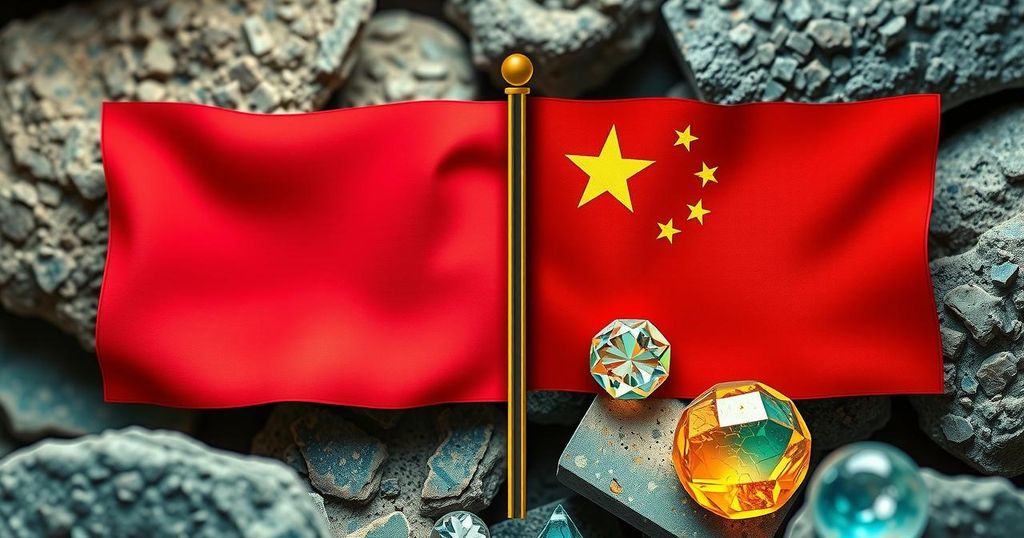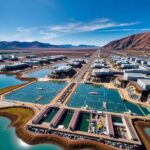Politics
ASHTIANI, ASIA, BA, BAHRAM SHARABEDDIN, BOLIVIA, CERRO MANOMÓ, CHINA, COCHABAMBA, CUBA, ENERGY, EXPORT, GEOPOLITICS, INTERNATIONAL COOPERATION, ISLAMIC REVOLUTIONARY GUARD CORPS, ISMAEL CHARLY RODRÍGUEZ, MEXICO, NORTH AMERICA, PALCA, PATRICIA BULLRICH, SECURITY, SERGEOMÍN, SERVICIO GEOLOGICO MINERO, SOLAR POWER, SOUTH AMERICA, TECHNOLOGICAL MINERALS
Dante Raeburn
Bolivia and Iran Engage in Rare Earth Mining Cooperation Talks
Bolivia and Iran have initiated talks on a rare earth mining partnership, focusing on cooperation in technology transfer and investment. Bolivia aims to capitalize on its rare earth resources to reduce reliance on external suppliers, particularly from China. However, critics raise concerns about transparency and environmental impacts, urging caution regarding geopolitical implications.
On March 13, Bolivia’s Deputy Minister of Technological Minerals, Ismael Charly Rodríguez, announced the commencement of discussions regarding rare earth mineral cooperation with Iran. The meeting included Ambassador Bahram Sharabeddin and mining representatives from both nations, with the objective of forming a partnership that emphasizes scientific research, technical collaboration, and Iranian investment in Bolivian mining projects.
Bolivia has identified two significant rare earth deposits: one located in Palca, Cochabamba, encompassing 16,000 hectares, and another in Cerro Manomó, Santa Cruz, covering 12,500 hectares. These regions are rich in strategic minerals such as neodymium, europium, and lanthanum, crucial for modern technologies including electric vehicle batteries and medical devices. The global market for rare earths exceeds $10 billion, with China currently controlling approximately 80% of the supply. Bolivia seeks to reduce its reliance on raw material exports by industrializing its resources.
Iran is pursuing economic alliances amidst extensive Western sanctions, leveraging South-South cooperation. Bolivia views this potential partnership as an opportunity to advance its mining sector independent of Western entities. The negotiations propose technology transfers, investments, and potential Iranian involvement in geological mapping within Bolivia. Reports indicate that the Iranian delegation expressed interest in joint investments in Bolivian mining projects and possesses technology that could enhance Bolivia’s geological mapping efforts, currently conducted by the Servicio Geológico Minero (Sergeomín). Rodríguez noted that Iran would absorb project costs, while Bolivia would offer compensation through various strategic services.
Critics have raised concerns about the transparency of these negotiations and potential environmental repercussions associated with rare earth mining. The processing of these minerals produces toxic waste, and Bolivia currently lacks adequate infrastructure for safe management. Additionally, fears regarding Iran’s broader geopolitical ambitions have emerged, especially considering previous military and intelligence collaborations. The recent increase in Iranian nationals entering Bolivia has drawn scrutiny, leading figures such as Argentine Security Minister Patricia Bullrich to express apprehensions about connections to Iran’s Islamic Revolutionary Guard Corps.
In July 2023, Bolivia and Iran formalized an agreement in Tehran, signed by Bolivian Defence Minister Edmundo Novillo Aguilar and Iranian Minister Mohammad Reza Ashtiani. Although the details of the pact remain undisclosed, it reportedly encompasses the sale of military equipment and the training of Bolivian military personnel.
Bolivia’s historical ties with Iran date back to the leftist government of Evo Morales in 2006 and were re-established under President Luis Arce following a cooling period during Jeanine Áñez’s interim administration (2019-2020). Analysts caution that deepening ties with Iran could lead to increased scrutiny, particularly from the United States and neighboring countries concerned about Iranian activities in Latin America.
Unless clear safeguards are instituted, this agreement may mirror previous resource extraction endeavors that prioritize foreign benefits over Bolivia’s economic interests, similar to recent lithium agreements with Chinese and Russian companies that have elicited significant criticism regarding national interests and environmental impacts.
In summary, Bolivia and Iran are entering discussions to establish a partnership in rare earth mining, aiming to enhance technology transfer and investment. Bolivia, with significant rare earth deposits, seeks to reduce dependency on foreign suppliers, particularly China. However, concerns about transparency, environmental safety, and geopolitical ramifications urge caution. Analysts emphasize the necessity for safeguards to protect national interests amidst foreign partnerships.
Original Source: intellinews.com








Post Comment